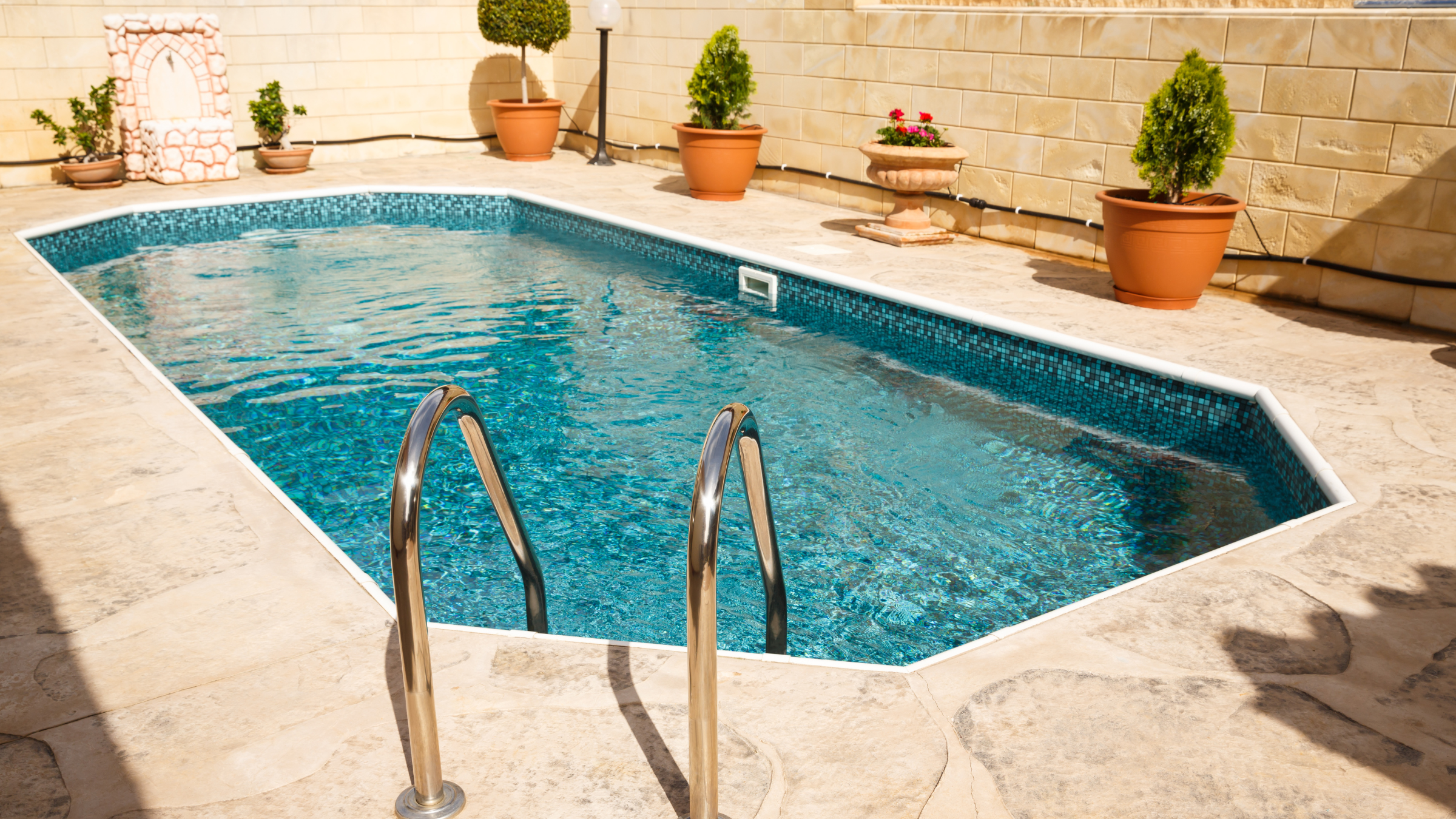Vinyl Pool vs. Gunite Pool: How to Decide Which to Build
If you’re thinking of adding an inground swimming pool, you might feel overwhelmed. There’s a ton of questions to consider… What will the pool look like? How much will the installation cost? How long will the installation take? What are the annual costs? And so on.
Many of these common questions can only be answered once you decide between the two basic pool structures: vinyl pools or gunite (concrete) pools.
When taking the time to decide which structure is best for you, we recommend you review and understand the advantages and disadvantages to both.
The Advantages to Vinyl Swimming Pools
Cost-Effective: Vinyl swimming pools are more affordable than gunite swimming pools.
Better Build Time: While build time can vary depending on the contractor, vinyl swimming pools are generally faster to build when compared to gunite. For example, a vinyl swimming pool project can be completed within two to three weeks, whereas a gunite pool project can take up to four months.
Require Less Maintenance: Generally speaking, vinyl swimming pools require less maintenance than gunite pools. While it’s still necessary to occasionally brush the walls and routinely test the water’s pH and chemical balance, vinyl pools require it less often. For vinyl pools, test the water once a week.
Compatibility With Salt: Vinyl swimming pools are salt water system compatible, whereas gunite pools are not (salt eats away at concrete over time).
Fully Customizable: Vinyl swimming pools can include custom add-ons, such as tanning beach or ledge, spillover spas and coping. The size and shape can also be customized.
The Disadvantages to Vinyl Swimming Pools
Require Vinyl Liner Replacement: No matter what measures you take, a liner replacement is inevitable for vinyl swimming pools. On average, a liner will last between 10-15 years before it needs to be replaced.
Tears, Holes, Leaks: Unfortunately vinyl pools can get tears and holes in the liner that result in the leaks. There are many reasons why these issues occur – such as foreign objects in the pool like rocks, sticks or even glass – but sometimes the main culprit is age. Old pool liners seem to get holes and tears for no reason at all.
The Advantages to Gunite (Concrete) Swimming Pools
More Appealing: Generally speaking, gunite swimming pools tend to look better than vinyl pools on a cosmetic level.
More Durable: Gunite pools are built to withstand severe weather and storms. Vinyl pools, on the other hand, can become extremely damaged due to weather conditions.
Fully Customizable: Gunite swimming pools can include custom add-ons, such as tanning beach or ledge, spillover spas and coping. The size and shape can also be customized.
The Disadvantages to Gunite (Concrete) Swimming Pools
Unavoidable, Rough Surface: Gunite pools are constructed using asbestos-free plaster, which has a pretty rough surface. The surface of gunite pools is rough enough to cause scrapes on your hands, feet, elbows, etc. if not careful while swimming inside the pool.
Require More Maintenance: Because gunite pools have an uneven texture, algae is more likely to flourish. This means that gunite pool owners must diligently test and maintain the pH and chemical balance of their pool water. For gunite pools, test the water two to three times per week. In addition, gunite pools require frequent brushing to not only prevent algae growth but also to minimize staining to the pool walls.
Require Resurfacing: Gunite pools will need to be resurfaced every seven to 10 years, on average. And, unfortunately, there is never a warranty on plaster (like there is on vinyl). Gunite pool resurfacing is more expensive than vinyl liner replacements, while also being more time-consuming and messy.
Can Crack: Cracks in concrete are expected, especially in the north east where the freeze cycles cause cracks to develop in the clay content of the gunite. Unfortunately, this means you can end up with cracks in the surface of your pool (where you don’t want them).
Pool Service and Management proudly serves the Tri-State Area. We are a residential and commercial pool company headquartered out of Montclair, in Essex County, New Jersey.
Call: 609-954-4327
Email: poolservicecompanymanagement@gmail.com

